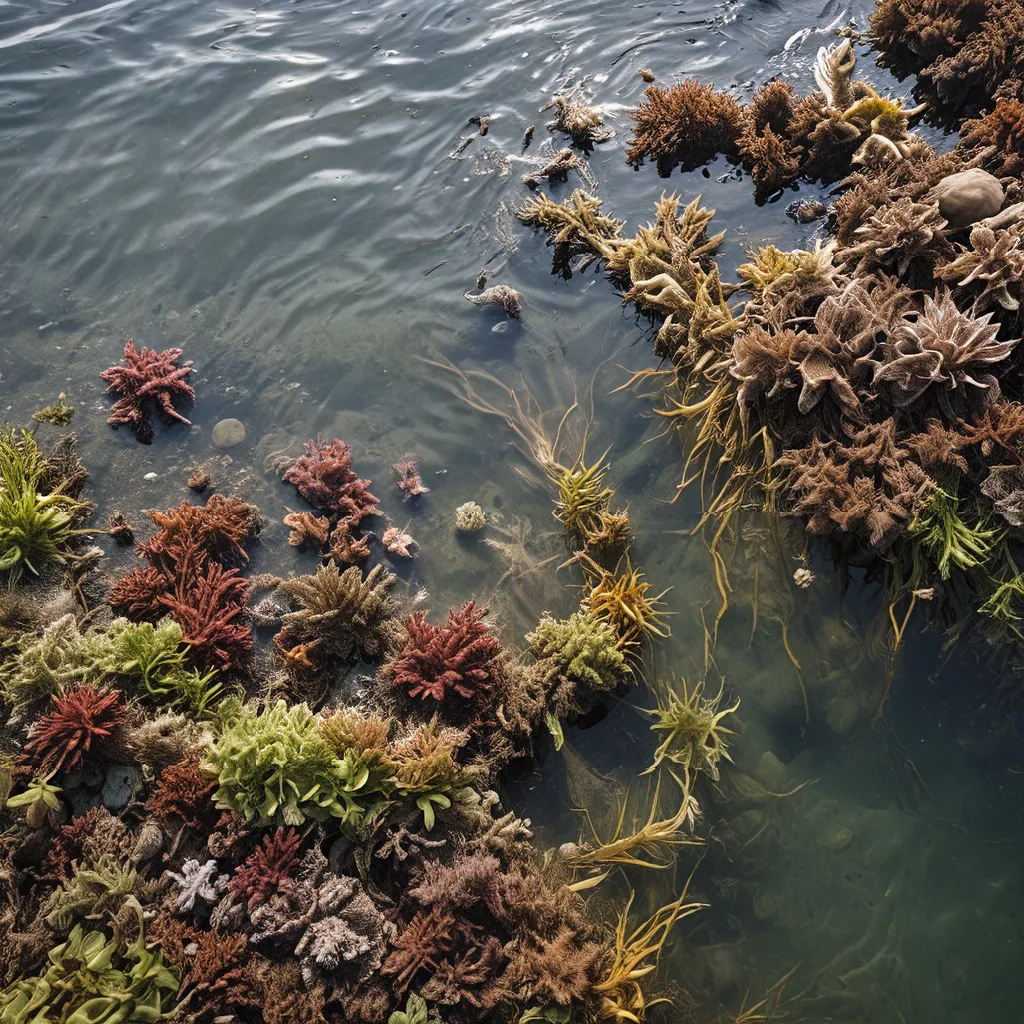
Have you ever wondered about the hidden consequences of wastewater discharge into our oceans? As someone who cares about the health of our planet, I sure have. And let me tell you, the more I’ve learned, the more concerned I’ve become.
Radioactive Ripples: The Fukushima Dilemma
It all started a few years back when the Japanese government decided to discharge treated Fukushima nuclear-contaminated water into the sea. Now, I get that they claimed the water was “purified” and all, but people around the world still had some serious concerns. And after digging into the research, I can see why.
You see, the Fukushima nuclear accident back in 2011 was no joke. The meltdown released all kinds of nasty radioactive isotopes into the environment, and a good chunk of that ended up in the wastewater. Even after “treatment,” the water still contained high levels of tritium – a radioactive form of hydrogen.
Now, tritium might not sound too scary, but the sheer volume of it in those contaminated waters is what’s really worrying. We’re talking about 1 petabecquerel (that’s 1 quadrillion becquerels!) of the stuff. Imagine if you had a huge bucket of water that was just slightly radioactive, and then you poured that into the ocean. That’s kind of what we’re dealing with here.
The thing is, tritium loves to integrate itself right into the marine ecosystem. It’s like an unwelcome party guest that just won’t leave. And as it spreads through the currents, it can expose all sorts of marine life to low-level radiation over the long term. That’s the real kicker – we may not see the full impact for years or even decades down the line.
But it’s not just tritium we need to worry about. The Fukushima wastewater also contained over 60 other radioactive substances, including some real heavy hitters like cesium-137 and iodine-131. These can bind to plants and soil, accumulate up the food chain, and wreak havoc on entire ecosystems.
According to the research, these radioactive elements can spread rapidly through ocean currents, putting marine organisms worldwide at risk. And get this – some of these isotopes, like cesium-137, have half-lives of 30 years or more. So we’re talking about a problem that’s going to linger for a long, long time.
Wastewater Woes: Pollution’s Persistent Peril
But it’s not just nuclear disasters that are causing problems for our oceans. Good old-fashioned wastewater pollution is just as much of a threat, if not more so. And the scariest part? It’s happening all over the world, day in and day out.
Think about it – wastewater is a cocktail of pathogens, nutrients, contaminants, and solids that can have devastating effects on marine life. Coral reefs, in particular, are incredibly vulnerable to this kind of pollution.
Those excess nutrients from wastewater can fuel algal blooms that block out sunlight and deplete oxygen, causing coral bleaching and disease. And the contaminants like heavy metals, pesticides, and pharmaceuticals? They can directly poison and disrupt the growth and reproduction of corals and other marine organisms.
It’s a vicious cycle, really. The more we dump into the ocean, the more we upset the delicate balance of these ecosystems. And the consequences ripple out in ways we’re still trying to fully understand.
Recent research has even identified a new class of emerging contaminants – things like hormones, personal care products, and agricultural chemicals – that are showing up in wastewater and causing all sorts of problems for marine life. Talk about a complex web of issues!
Navigating the Murky Waters of Change
So, what can we do about all this? Well, for starters, we need to get serious about monitoring and regulating wastewater discharges, both on the nuclear and the general pollution fronts. Continuous tracking of radioactive elements, for example, could help us better understand how these contaminants are moving through the ocean over time.
And you better believe that businesses like Alpha Wastewater are going to be crucial players in this fight. They’re the ones on the ground, helping communities and industries treat and manage their wastewater in more responsible, eco-friendly ways.
But it’s not just up to the experts and the companies. We all have a role to play in protecting our marine ecosystems. Things like reducing our own household waste, supporting sustainable seafood, and advocating for stronger environmental policies can make a real difference.
The truth is, the long-term impacts of wastewater pollution are still largely unknown and evolving. Researchers are still working to fully understand how these contaminants affect the genetic diversity and evolutionary trajectories of marine organisms. It’s a complex issue with a lot of moving parts.
What I do know is that our oceans are a precious, interconnected resource that we simply can’t afford to take for granted. The health of marine ecosystems is inextricably linked to our own well-being as a species. And if we don’t start taking this problem seriously, we may end up paying the price in ways we can’t even imagine.
So let’s roll up our sleeves and get to work, shall we? The future of our blue planet depends on it.